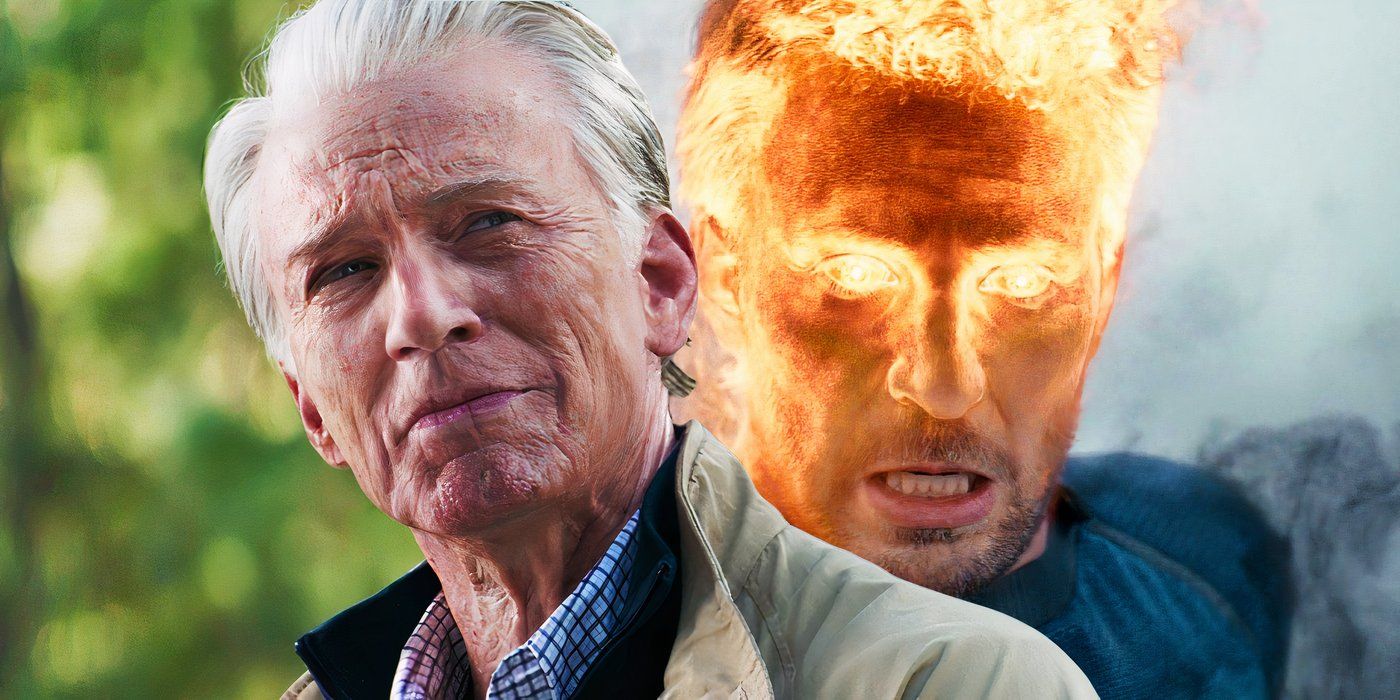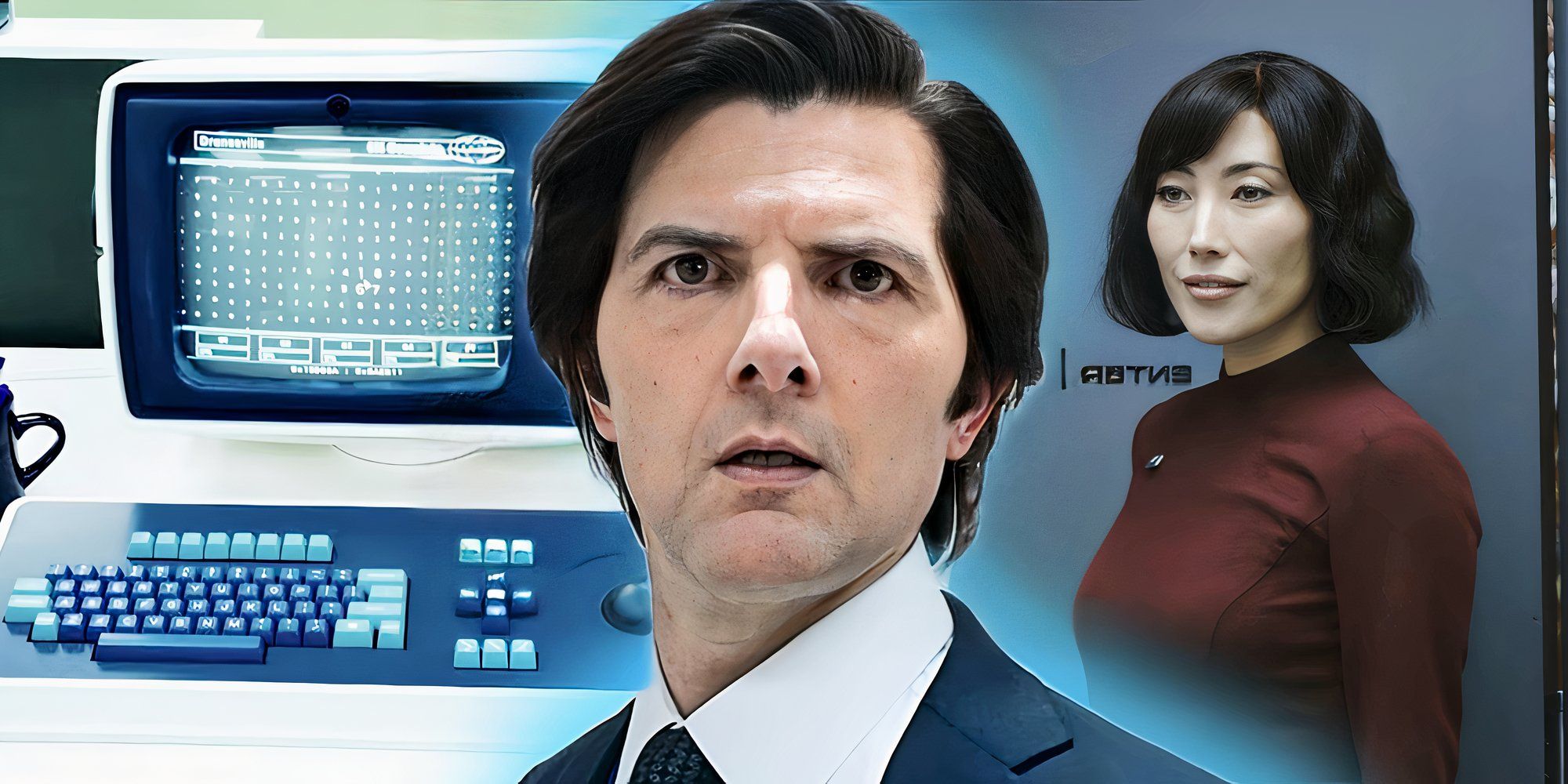Robert Eggers is taking the concept of a bloody Valentine quite literally for an upcoming program at New York City’s Film at Lincoln Center. The auteur has curated a nine-film lineup for “Conjuring ‘Nosferatu‘: Robert Eggers Presents,” which will take place February 5 through 9. Eggers has selected a series of films to screen, all of which influenced his latest Gothic horror film, “Nosferatu,” which will have a special 35mm screening as part of the series.
“I am honored to share this collection of films that inspired my adaptation of ‘Nosferatu,’” Eggers said in a press statement. “It’s a world of Gothic romance, fairy tales, and folklore, made by filmmakers with a passion to transport the audience to another time, another place, and another way of thinking and believing.”
Eggers picked a slew of 20th century international features, including iconic films like Jean Cocteau’s 1946 version of “Beauty and the Beast” and David Lean’s Charles Dickens adaptation “Great Expectations” from the same year.
“From the overwhelmingly atmospheric work of David Lean or Thorold Dickinson’s ‘Queen of Spades’ that utilize massive set builds on soundstages — to the visually naïve and yet terrifying ‘She-Butterfly’ by Serbian filmmaker Đordje Kadijević, all the films have the ability to enthrall your imagination and make you a believer yourself,” Eggers said.
The Film at Lincoln Center press statement applauded Eggers’ own contributions to cinema history. “Across four intensely stylish, powerfully atmospheric and richly detailed feature films, Eggers has established himself as one of contemporary cinema’s most singular auteurs,” the statement reads. “His work looks to disparate historical periods, folkloric traditions, the abject and the arcane alike to craft enigmatic and utterly gripping parables about madness, the antagonism between man and nature, and desire as all-consuming compulsion. But his films, while deeply researched and steeped in worlds that themselves predate the advent of cinema, are nevertheless plainly the output of a consummate cinephile, an artist as conversant with film history as he is with the history of the occult. This is particularly evident in his latest, ‘Nosferatu,’ which takes up the challenge of reinventing the story of Dracula and brings the viewer on a raw emotional journey.”
Tickets for “Conjuring ‘Nosferatu’: Robert Eggers Presents” will go on sale on January 17 at 2 p.m. ET, with an early access period for FLC Members starting January 17 at 12 p.m. ET. Tickets are $17; $14 for students, seniors (62+), and persons with disabilities; and $12 for FLC Members. The program is organized by Florence Almozini and Dan Sullivan.
Check out the full lineup, with film descriptions from Film at Lincoln Center, below.
 ‘Nosferatu’Courtesy of FOCUS FEATURES
‘Nosferatu’Courtesy of FOCUS FEATURES“Nosferatu,” Robert Eggers, 2024, U.S., 35mm, 132m
For his fourth feature film, Robert Eggers exhumes what might be considered the urtext for all horror cinema: F.W. Murnau’s landmark masterpiece, 1922’s Nosferatu (itself an adaptation, or perhaps more accurately a transformation, of Bram Stoker’s 1897 novel, Dracula). Thomas Hutter (Nicholas Hoult) seeks to provide financial stability for his wife Ellen (Lily-Rose Depp) by selling a decrepit local villa to a Transylvanian nobleman, the reclusive Count Orlok (Bill Skarsgård). Hutter’s journey is marked by myriad strange and frightening events, but little does he know that his otherworldly encounter with Orlok will summon a seemingly unstoppable, plague-like evil to his own doorstep. Rendered with all of the rich detail and disarming atmospherics that have characterized his work to date, Nosferatu is Eggers at the height of his powers: an astonishing, meticulously crafted, and oddly touching parable about desire, disease, and death. Also featuring Aaron Taylor-Johnson, Emma Corrin, Willem Dafoe, and others. A Focus Features release.
Wednesday, February 5 at 6:00pm at the Walter Reade Theater
“Svengali,” Archie Mayo, 1931, U.S., 16mm, 81m
A Pre-Code sound take on George du Maurier’s 1894 novel Trilby, this eerie mystery stars John Barrymore as the titular music teacher, who controls (and ultimately destroys) the young women under his tutelage through his curious powers of suggestion. Svengali sets his sights on Trilby O’Farrell (Marian Marsh), an artist’s model, and the sinister teacher’s pattern of manipulation and ruin seems to be repeating itself yet again—but Trilby’s old lover, Billee (Bramwell Fletcher), seeks to discover the truth about Svengali’s hypnotic influence. Barrymore’s turn in the lead role is itself a feat of silver-screen mesmerism, portraying Svengali as a cruel yet magnetic figure who wields his own charisma as an instrument of terrible power. 16mm collection print courtesy of the UCLA Film & Television Archive.
Thursday, February 6 at 6:15pm at the Francesca Beale Theater
“Beauty and the Beast,” Jean Cocteau, 1946, France, 35mm, 96m
French with English subtitles
Among world cinema’s greatest fairy tales, Jean Cocteau’s 1946 adaptation of Jeanne-Marie Leprince de Beaumont’s 1757 story endures as one of the medium’s most beloved and influential fantasies. Jean Marais (as the feral Beast) and Josette Day (as the young Beauty who transforms his heart) turn in historically romantic and utterly magnetic performances that, combined with a delirious array of exquisite sets and costumes and Cocteau’s penchant for harnessing the artifice of filmmaking to conjure a world beyond and yet within our own, cohere into a timeless reflection on wonder, romantic desire, and death.
Friday, February 7 at 6:00pm at the Walter Reade Theater
Saturday, February 8 at 1:30pm at the Walter Reade Theater
“Great Expectations,” David Lean, 1946, U.K., 118m
Perhaps the definitive film adaptation of Charles Dickens, David Lean’s classic 1946 rendition endures as one of the all-time great (and most faithful) transfigurations of literature into cinema. The timeless story of orphan Pip (Anthony Wager and John Mills) as he grows up in 1810s London with the help of an unknown benefactor, Great Expectations—the first of Lean’s signature takes on Dickens, the other being 1948’s Oliver Twist—is powered by an astonishing ensemble cast, assembled by production company Cineguild, including Valerie Hobson, Jean Simmons, Alec Guinness, William Currie, Martita Hunt, and others. But most pertinent here: the film’s graceful, dimensional depiction of 19th-century England, expertly photographed by DP Guy Green.
Saturday, February 8 at 3:45pm at the Walter Reade Theater
“The Queen of Spades,” Thorold Dickinson, 1949, U.K., 95m
Drawing from Alexander Pushkin’s short story of the same title, Thorold Dickinson’s stunning, baroque fantasy conjures a sense of the supernatural that verges on the surreal. Set in 1806, the film follows a Russian military officer (Anton Walbrook) who seeks to learn the secret of a countess (Edith Evans) who purportedly sold her soul in exchange for learning the secret to winning high-stakes card games. He (along with a friend and fellow officer) begins courting the countess’s young ward in the hopes of getting closer to the countess, but soon enough his scheme goes badly sideways—and, perhaps, supernatural. An object lesson in the power of cinema to evoke atmosphere and the sense of an invisible world beyond the veil of the visible.
Friday, February 7 at 8:15pm at the Walter Reade Theater
Sunday, February 9 at 5:15pm at the Walter Reade Theater
“Andriesh,” Yakov Bazelyan, Sergei Parajanov, 1954, USSR, 63m
Russian with English subtitles
Sergei Parajanov’s feature debut was this mesmerizing fairy tale adaptation, drawn from the work of Moldavian writer/poet Emilian Bukov. The story concerns a young shepherd boy who dreams of becoming a knight and receives an enchanted flute, which assists him in his journey to the castle of an evil wizard known as Black Whirlwind. Shot by The Color of Pomegranates DP Suren Shahbazyan and expanding upon one of his earlier student films, Andriesh affords us a fascinating glimpse at Parajanov’s artistry at the very beginning of his career, his mastery of cinematic pictorialism already in evidence. Courtesy of the Oleksandr Dovzhenko National Centre.
Friday, February 7 at 4:30pm at the Walter Reade Theater
Sunday, February 9 at 2:00pm at the Walter Reade Theater
“The Innocents,” Jack Clayton, 1961, U.K., 100m
A seminal gothic chiller, Jack Clayton’s second feature (following his Oscar-nominated debut, Room at the Top) draws its plot from Henry James’s 1898 novella A Turn of the Screw, adapted for the occasion by William Archibald and Truman Capote. Deborah Kerr stars as Miss Giddens, a woman working her first job as a governess for a rich bachelor (Michael Redgrave), moving to his country estate to look after two orphans who are in his custody. But as time passes, Miss Giddens increasingly believes that the estate is haunted, and that the children’s outbursts are evidence of spectral possession…. A touchstone work examining the relationship between the paranormal and the psychological, The Innocents endures as one of cinema’s finest ever ghost stories.
Saturday, February 8 at 6:15pm at the Walter Reade Theater
Sunday, February 9 at 7:30pm at the Walter Reade Theater
“The Eve of Ivan Kupalo,” Yuri Ilyenko, 1968, USSR, 71m
Ukrainian with English subtitles
Loosely based on a story of the same title by Nikolai Gogol, Yuri Ilyenko’s 1968 adaptation is a visually astonishing work on the borderline between cinematic narrative and pure poetry. Humble farmer Piotr wishes to marry the beautiful Pidorka, but, of course, her father disapproves. But a mischievous demon who lives somewhere in the countryside might hold the key to Piotr being able to obtain the object of his desire, setting the stage for a Faustian bargain with otherworldly consequences. A beguiling and transfixing work in which images overflow with symbols, theological and folkloric motifs, and visual touches ranging from the surreal to the ethnographic, The Eve of Ivan Kupalo is one of Ilyenko’s richest films. Courtesy of the Oleksandr Dovzhenko National Centre.
Thursday, February 6 at 8:15pm at the Francesca Beale Theater
Sunday, February 9 at 3:30pm at the Walter Reade Theater
“The She-Butterfly / Leptirica,” Đordje Kadijević, 1973, Serbia, 63m
Serbian with English subtitles
A consummate work of cinematic folk-horror, Đordje Kadijević’s 1973 feature follows a young man who, in the hopes of persuading a rich, stern landowner to accept his bid to marry the landowner’s daughter, takes a job as a miller in the rural village Zaroshje. But no sooner does he start the job than a series of eerie events takes place at the flour mill, and it becomes increasingly apparent to the villagers that the mill has become home to a legendary vampire, Sava Savanović. Drawn from Milovan Glišić’s story “After 90 Years”—among the earliest modern treatments of vampires, predating Stoker’s Dracula by 17 years—and from regional folklore, The She-Butterflyis a visually and aurally rich example of an approach to horror cinema that is refreshingly distant from Hollywood’s genre conventions and tropes, and perhaps even more unsettling.
Wednesday, February 5 at 9:15pm at the Walter Reade Theater
Saturday, February 8 at 8:30pm at the Walter Reade Theater

 5 days ago
3
5 days ago
3










 English (US) ·
English (US) ·